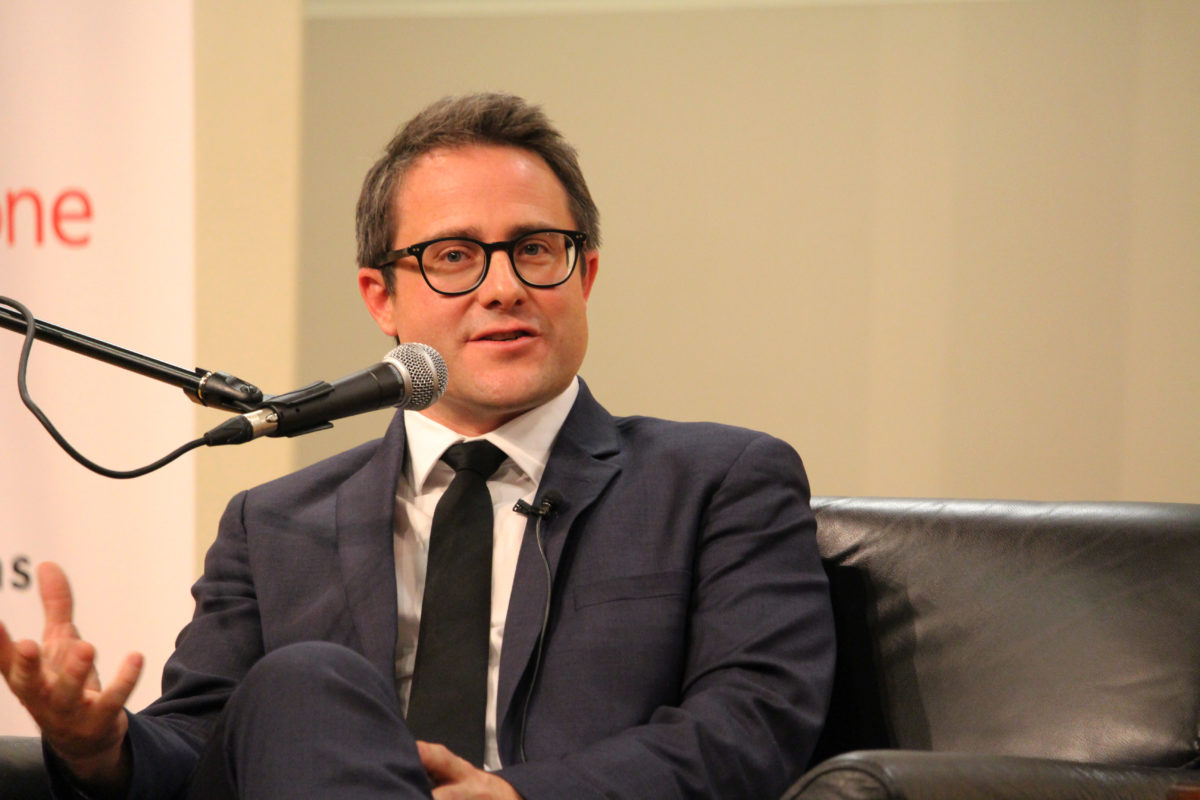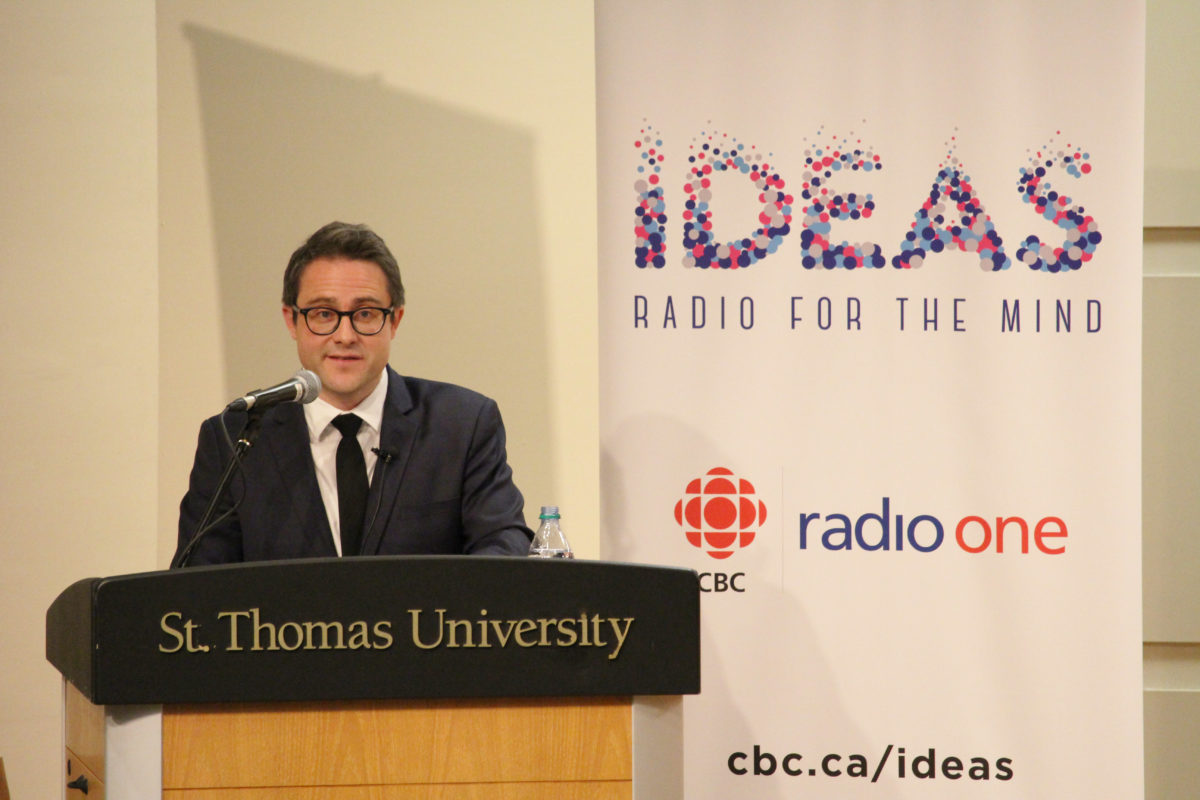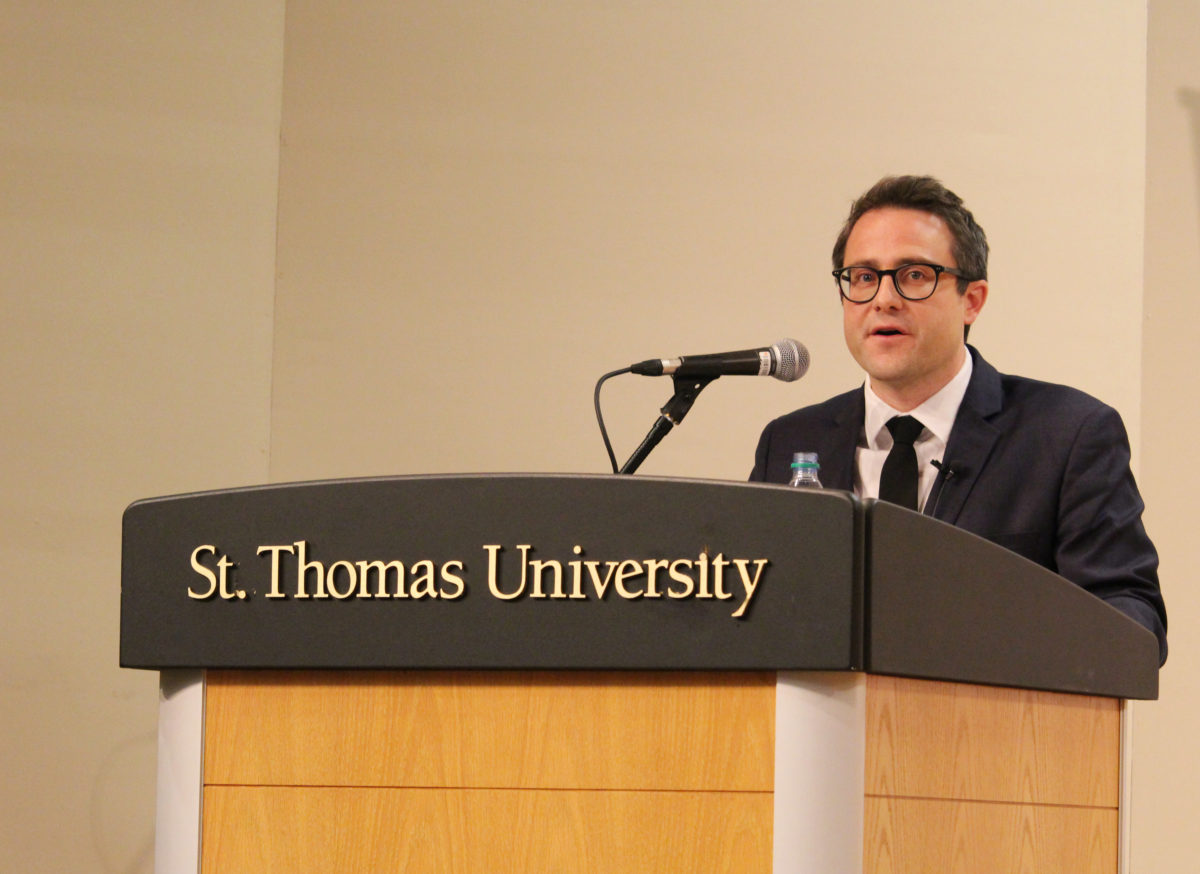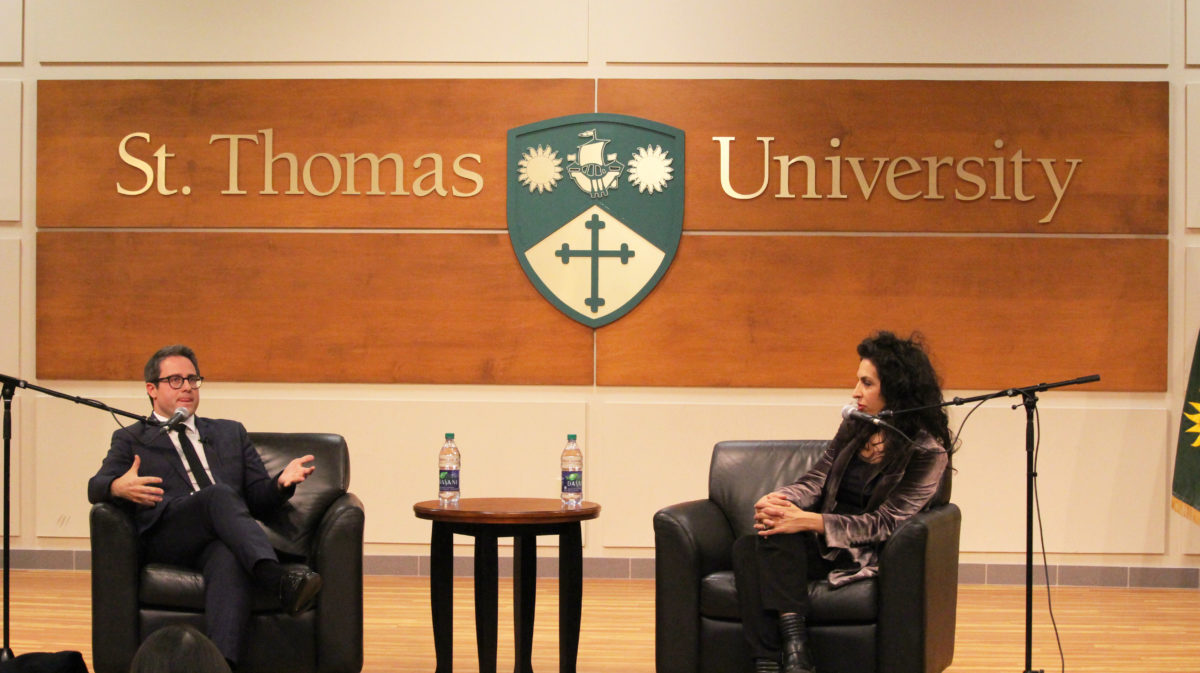Taylor Owen, assistant professor of digital media and global affairs at the University of British Columbia, called on society to take control of our future and our democracy. By understanding, questioning and calling-out the consequences of technological advances on society you can combat what he calls “this anxiety that is enveloping us.”
Owen came to speak at St. Thomas University on Nov. 23 in Kinsella Auditorium for the annual Dalton Camp lecture.
Owen discussed five main areas of democracy and the media. He first addressed how the internet empowered people to take control of their security and rights. This made room for criminal activity online and states fought to control it. This is where issues began with democracy on the internet.
“Trying to stop the bad aspects by government will ultimately kill the good aspects,” said Owen.

Owen touched on the connection between journalism and democracy and how the internet changed everything.
“Journalists served as the interpreters of the world,” said Owen.
With the rise of social media, things changed. Social media platforms like Twitter and Facebook gave citizens the ability to publish their thoughts of world events, threatening the position of journalism as the gatekeeper of knowledge.
“Social media platforms weren’t just remaking journalism,” said Owen, “They were reshaping our society.”
Owen discussed fake news and how it can thrive on social media.
“The term ‘fake news’ has become everything and nothing,” said Owen.


Owen compared society’s dependence on social media to George Orwell’s 1984 and Aldous Huxley’s Brave New World. Owen discussed how platforms like Facebook have been used to manipulate a larger voter turnout by showing people photos of online friends who also voted.
“Facebook promotes this capability to influence behaviour,” said Owen.
Owen touched on the size of social media and how it has changed the world.
“On platforms the spread of content is virtually uncontrollable,” said Owen.
This uncontrollable power is what allows fake news to spread to the world so easily, he said.
He also argued the size of social media today is no excuse for the danger it has created.
“What if Ford said, ‘We can’t possibly make every car ‘safe’ because of scale?” said Owen.
Owen finished the lecture by discussing where journalism is headed and the governing of our democracy.


“I think we’re on the cusp of technological advances that will blur what we perceive to be real and fake.”

